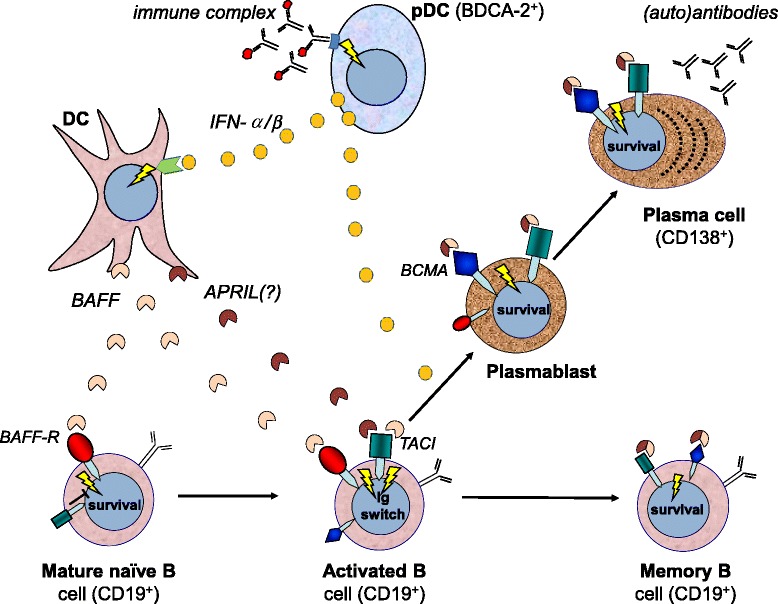Figure 4.

Schematic illustration of suggested interaction of dendritic cells, type I interferon and local B cell differentiation in myositis muscle. Plasmacytoid dendritic cells (pDCs) stimulated by immunocomplexes produce type I interferon (IFN-α/β) and induce conventional dendritic cells (DCs) to secrete the cytokines B cell–activating factor of the tumour necrosis factor family (BAFF) and a proliferation-inducing ligand (APRIL), which influence B cell differentiation and survival. Their three receptors—BAFF receptor (BAFF-R), B cell maturation antigen (BCMA) and transmembrane activator and calcium modulator and cyclophilin ligand interactor (TACI)—are differentially expressed during the maturation of B cells from naïve to memory B cells and plasma cell generation. Class switch, differentiation to plasmablast and survival are also enhanced by IFN-α/β. The presence of APRIL in myositis muscle is unclear, but its importance for immunoglobulin (Ig) class switch is known.
